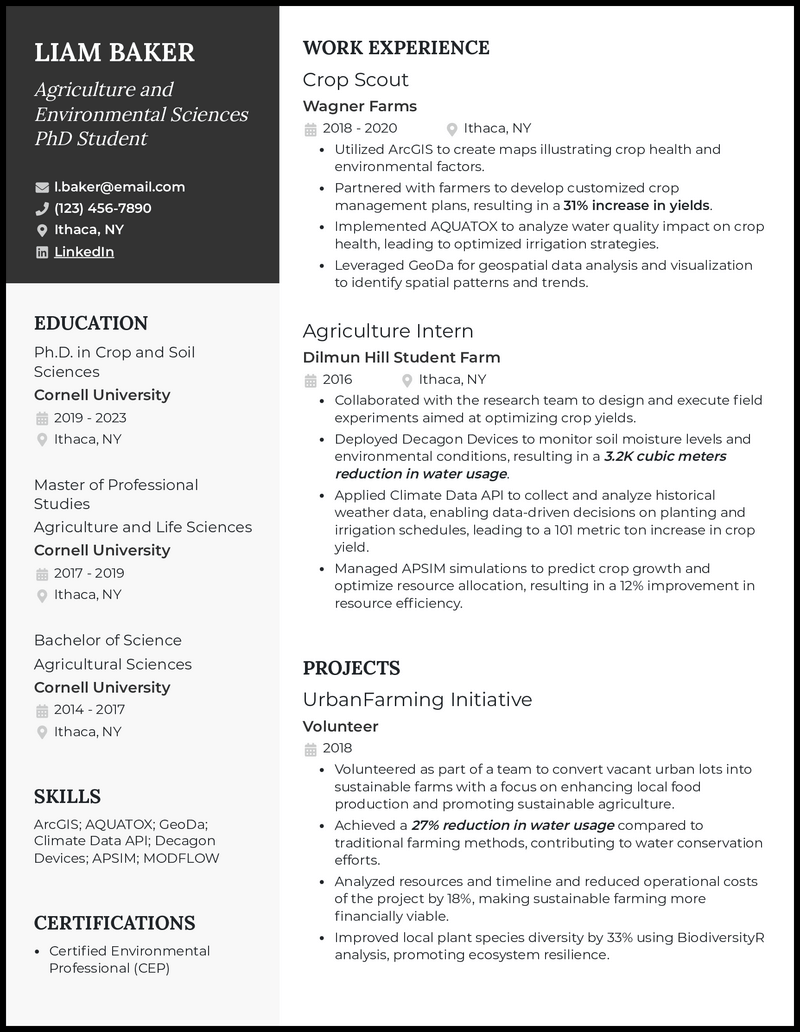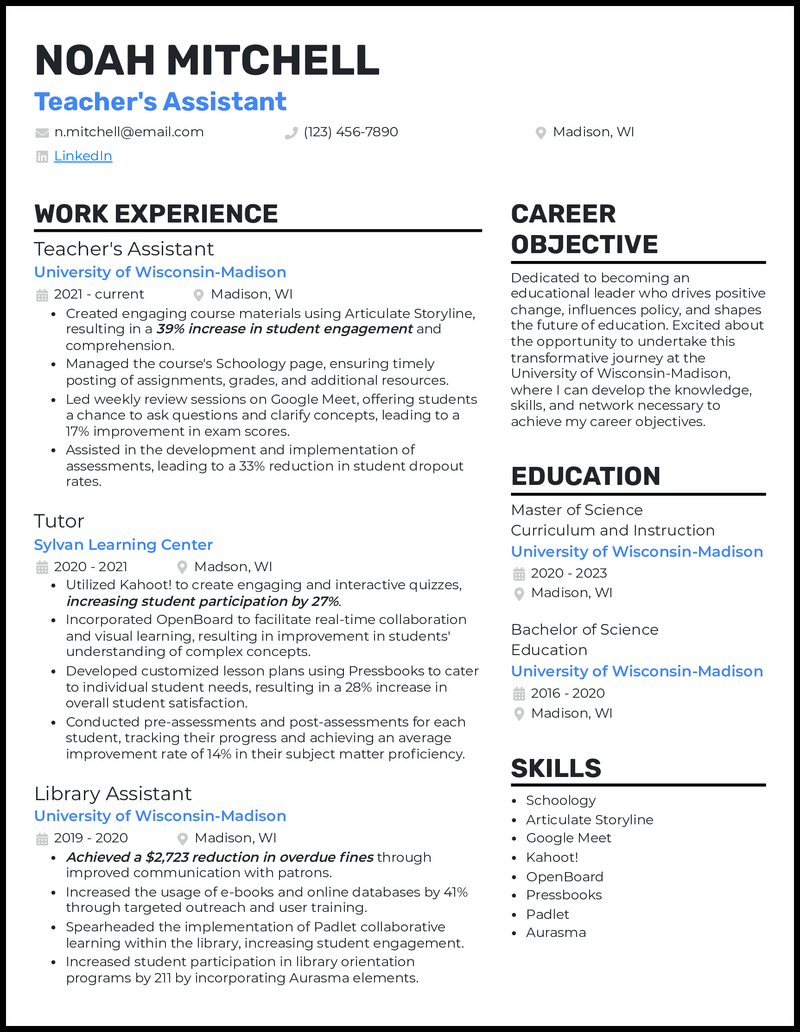

With the role of a PhD student, you’re the intellectual powerhouse driving groundbreaking research and contributing to the advancement of knowledge. Your expertise allows you to dive deep into complex subjects, developing innovative solutions and pushing the boundaries of what’s already known.
At the same time, you’ll need to balance your responsibilities as a teacher as well, imparting your knowledge to the undergraduates at your institution. Crafting a resume and creating a cover letter that demonstrate your ability to shine in this diverse role is no easy task.
Luckily, we’re here to guide you through the maze of showcasing your academic journey. With our varied PhD application resume examples, you’ll find the ideal resume template to help you craft your own winning resume in no time.






As an aspiring PhD student, your resume is your scholarly calling card, showcasing the intellectual artillery you bring to the academic battlefield.
This is where you can showcase your skills and express why you’re the right person to join the program. To do this, tailor your skills section to align with the specific requirements of your desired program and department.
Highlight your expertise in research methodologies, statistical analysis, and any specialized software or equipment you’ve mastered. For the more technically inclined, don’t shy away from showcasing hard skills like Python, Matlab, Java, or Tableau.
You can also include a couple of soft skills because they’re essential for giving lectures and mentoring students. Just remember to reinforce them with demonstrable examples in the experience section later.
Want some pointers?
![]()
From conducting groundbreaking research to publishing papers, your journey as an academic is about more than just the day-to-day grind. In the experience section of your resume, the real spotlight should be on your transformative contributions.
If this isn’t your first PhD, highlight achievements from your previous studies like securing research grants, publishing impactful papers, or successfully leading research projects. If you’re moving up from postgraduate studies, highlight the best and most impressive accomplishments from your master’s and bachelor’s degrees.
Add some numbers to make your accomplishments pop. This could be the number of students mentored, successful experiments and research projects, or the reach of your published work.
See what we mean?
Absolutely! While not mandatory, a tailored career summary can be a powerful tool. Customize it for the PhD position, mentioning the specific program and academic role. Don’t forget to highlight things like research methodologies, data analysis, and any unique contributions to your academic field.
Choose a clean and professional format that prioritizes your academic achievements and research experience. Use clear headings, bullet points, and a consistent structure, much like you would in a research paper.
How do I determine what skills to include?Include skills that align with the specific requirements of the PhD program and your academic discipline. Highlight technical and soft skills relevant to research, teaching, fieldwork, and collaboration.